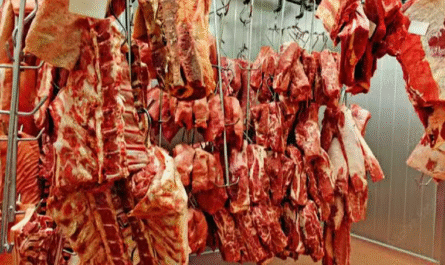Cervical Cancer Vaccination Drive Launched for School Girls in Pakistan — A Landmark Step Toward Women’s Health
In a major breakthrough for women’s healthcare in Pakistan, health authorities have officially launched a nationwide cervical cancer vaccination drive targeting school-aged girls. The initiative, spearheaded by the Ministry of National Health Services in collaboration with UNICEF and the World Health Organization (WHO), aims to protect young girls from the Human Papillomavirus (HPV) — the leading cause of cervical cancer.
This bold and timely campaign is expected to dramatically reduce the future burden of cervical cancer, which remains one of the most preventable yet deadly cancers affecting women in Pakistan.
Understanding the Need: Cervical Cancer in Pakistan
Cervical cancer is the second most common cancer among women in Pakistan, claiming thousands of lives every year. Yet, it is also one of the most preventable cancers — thanks to the HPV vaccine, which has been proven to be highly effective if administered before exposure to the virus, typically during adolescence.
According to the International Agency for Research on Cancer (IARC), over 5,000 new cases of cervical cancer are reported in Pakistan annually, with a mortality rate of more than 50%. Due to lack of awareness, late diagnoses, and limited screening facilities, many cases are detected only when the disease has progressed to an advanced stage.
Who Is Being Vaccinated?
The current phase of the vaccination campaign is focused on girls aged 9 to 14 years, who are considered the ideal demographic for preventive immunization before potential exposure to HPV. The vaccine is being administered in government and private schools, with the support of health workers and trained volunteers.
The vaccine, which is WHO-approved and globally recognized, will be provided free of cost under the government’s expanded immunization program.
Implementation Strategy
The vaccination drive will be carried out in phases, starting in major urban centers like Islamabad, Lahore, and Karachi, before expanding to rural areas. Key features of the strategy include:
- On-site vaccination at schools
- Parental consent and awareness sessions
- Training for school staff and vaccinators
- Collaboration with education departments and civil society organizations
In areas where girls are out of school, community health centers and mobile vaccination teams will ensure the vaccine reaches every eligible child.
Battling Myths and Misinformation
As with any vaccination campaign, especially one involving young girls, public concerns and cultural sensitivities are expected. Authorities are taking proactive measures to dispel myths and educate parents on the safety and necessity of the HPV vaccine.
Health experts emphasize that the vaccine does not encourage early sexual activity, a common misconception, but rather offers lifesaving protection against future infections that can lead to cervical cancer.
UNICEF Pakistan’s health officer remarked:
“This vaccine is about preventing cancer, not about changing values. We must protect our daughters while they are young and healthy.”
Voices of Support: A National Milestone
The launch of this vaccination drive has been hailed by women’s rights advocates, medical professionals, and public health experts as a historic milestone in Pakistan’s healthcare journey. Many see it as a long-overdue step in recognizing and addressing the health needs of women and girls in a country where preventive care is often neglected.
Dr. Sania Nishtar, a leading health reformer, tweeted:
“The cervical cancer vaccination drive is a giant leap forward for public health. Let’s protect our girls today to ensure a cancer-free tomorrow.”
Challenges Ahead
Despite the positive momentum, challenges remain:
- Ensuring equitable access in rural and remote areas
- Overcoming cultural resistance and misinformation
- Sustaining vaccine supply chains and cold storage facilities
- Encouraging follow-up doses where required
However, with the backing of international organizations and strong political will, the campaign is well-positioned to overcome these hurdles.
Conclusion: A Lifesaving Campaign for Future Generations
The launch of Pakistan’s cervical cancer vaccination drive marks a turning point in the fight against a silent killer. By immunizing young girls today, the country is making an investment in healthier futures, stronger families, and empowered women.
While the road ahead involves sustained effort and education, this initiative sets a powerful example of how preventive healthcare can save lives — and change the national narrative around women’s health for good.



